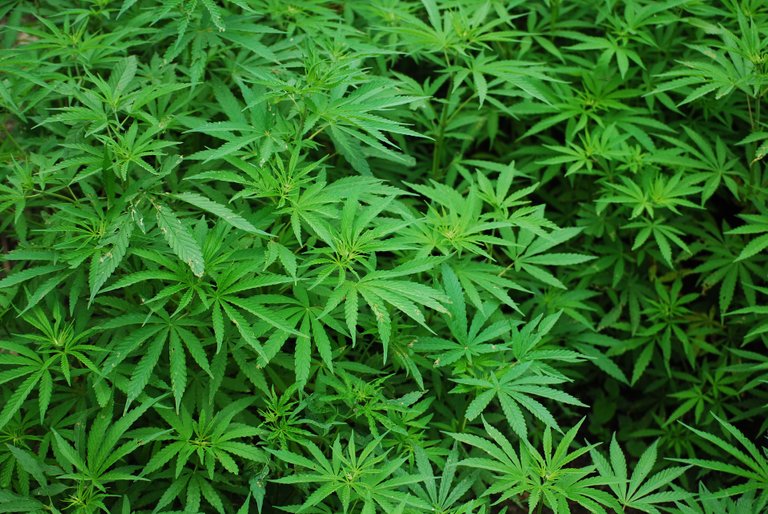By: Paul Vancea | May 7, 2018

The cultivation of Cannabis can be traced back at least 12,000 years, which places the plant among humanity’s oldest cultivated crops. Ancient empires such as China, Egypt, Syria, and India employed every component of the plant: the root for medicine, the stem for textiles, the flowers for medicine and intoxication, and the seeds for food and oils. Older civilizations used Cannabis as a remedy for headaches, edema, inflammation, rheumatism, gout. It was even used to relieve sorrow and bad humor. Cannabis was the great plant, as it was considered a gift from God, a plant that can be used ubiquitously, in virtually every part of human life. However, as society evolved, Cannabis restrictions were introduced.
HISTORY OF CANNABIS LEGISLATION
In the past century, there have been no less than 16 pieces of legislation that criminalized Cannabis in the United States. These pieces of legislation have dictated the U.S. policy towards Marijuana and Cannabis use without regard for modern innovation, medicinal uses or public support; none were based on scientific studies or sound logic – they were the result of special interests and sloppy voting practices by politicians. While states have made tremendous progress in legalization, this historically irrational legislation of Cannabis survives on a federal level in 2018 and is the single biggest obstacle the Cannabis industry is facing today.
Cannabis prohibition began in many states in 1906, and by the 1930s Cannabis was fully regulated as an illegal drug in every state. The Marihuana Tax Act of 1937 was the first federal regulation of the plant. In 1969, the Supreme Court ruled the Marihuana Tax Act to be unconstitutional, violating the Fifth Amendment regarding self-incrimination. In response to the Supreme Court’s ruling, the Nixon administration supported Congress and passed the Controlled Substances Act (CSA) in 1970, which stated the Cannabis has a high potential for abuse, and no medical use. CSA prohibited the use of Cannabis for any purpose (recreational and medical), and classified the plant under Schedule I, together with heroin and LSD. President Nixon formed the Shafer Commission in 1972 to study the use of Cannabis and provide policy recommendations. The Shafer Commission reported in its findings that Cannabis did not cause any considerable dangers to society, and recommended decriminalization of the plant. President Nixon publicly rejected the findings and fully ignored the recommendations.
Since then, multiple efforts to reschedule cannabis under the CSA have failed. On the state level, governments have continued to push for policies that conflict with federal law, beginning with California’s Proposition 215 in 1996. By 2018, 30 states plus Washington D.C. have legalized medical cannabis, and 8 states have legalized recreational use.
HEALTHCARE IMPLICATIONS

Research shows that Cannabis is not a gateway drug, but on the contrary, it is an addiction exit drug. Cannabis has been proven to help opioid, heroin, and even alcohol addicts avoid the nasty withdrawals associated with opioid addiction. Millions are suffering from addiction to opiates (Heroin, Codeine, Morphine) and synthetic opioid medications (Oxycodone, Fentanyl, Hydrocodone etc.). Abusers of opioid drugs had a 16-percent lower likelihood of relapsing when they had the assistance of marijuana for their recovery. Furthermore, states that allow its citizens to use Cannabis to treat specific medical conditions showed a 6% lower rate of opioid prescription. With widespread over-prescription of opiates, this could provide a solution to cut down on users.
Cannabis not only helps opioid addicts with their recovery process, but it can help patients avoid opioids altogether. Cannabis has been proven to relieve patients’ pain, drastically reducing the need for use of opioid, and fatal opioid overdoses. Medical marijuana patients report fewer unpleasant side effects with marijuana than with many traditional and stronger drug treatments. Medical marijuana patients argue they are able to function more fully in daily activities and work; unlike with many prescription opiates for symptom relief. Other than significantly reducing with use, addiction and withdrawal, medical marijuana is used in treating a myriad of medical conditions, including cancer, seizures, HIV, Parkinson’s, etc. Wide-spread legalization will only accelerate these cures and studies. Cannabis’ full impact on the healthcare industry is still to be determined, but it is well within tens of billions of dollars, and provides a much safer, healthy and less painful alternative to opioids.
BUSINESS IMPLICATIONS
Money does not like uncertainty. With the current uncertainty in U.S. federal law regarding Cannabis, there is a lot of money that is shy to enter and help develop the U.S. Cannabis industry. Still, legal sales of Cannabis reached $6.9 billion in 2016 and are projected to rise all the way to $50 billion by 2026. Legalizing Cannabis nationwide would create at least $132 billion in tax revenue and more than a million jobs in the U.S. within the next decade.
Despite 30 states having legalized Cannabis in some capacity, including 8 states that legalized it for recreational uses, it seems that AG Jeff Sessions is offering no chance of legalization at a federal level.
Even though many States have legalized cannabis, the Federal regulations stops the entrepreneurs from operating at fully capacity. National prohibitions against interstate cannabis commerce and federal banking and drug laws are the biggest obstacle for this industry. Cannabis entrepreneurs have very limited access to funds, loans, even bank accounts, business and personal.
Some of the entrepreneurs we spoke with expressed their frustration with the current legislation. First, they cannot find banks that allow them to open business accounts for their companies. This makes it extremely difficult to conduct any kind of business; they cannot properly receive investments, process payroll, pay suppliers, use credit cards, etc. There are many cases where banks agreed to open an account for a Cannabis business, only to cancel those accounts weeks later and kick those businesses out. In some cases, not only did they cancel the business’ account, but they canceled the business’s founder’s personal accounts with the same bank, even though they have been banking with that institution for many years.
Entrepreneurs in the Cannabis industry have no tools to be transparent about their business, cannot write off any business expenses, and cannot even file their taxes properly. How do you file federal taxes for a Cannabis business when Cannabis is illegal?
Even non-Cannabis, ancillary companies are suffering under this law, simply for being attributed with possible Cannabis applications. It is time to stop being
SOLUTIONS
Declassify Cannabis from Schedule I to Schedule II. Decades of legal red tape, illegality and raids due to Schedule I classification have prevented the U.S. Cannabis industry from fully maturing and providing life changing cures, painless treatments, and healing solutions. Propaganda and misinformation must be eradicated so that safe innovation can be brought to an industry that has already garnered widespread public support to provide safe and efficient healthcare solutions, as well as lucrative business and tax opportunities for the U.S.
Provide ways to educate: the federal government should make a concerted effort to educate consumers of the differences in the chemical makeup of the plants especially regarding non-addictive compounds like CBD. Much of the fear is spread by propaganda. Medical marijuana compounds and methods that are used strictly in the reduction of pain and do not react with mental/job performance are very prevalent in the space.
Eliminate any federal red tape that would prevent the Cannabis industry from growing. The U.S. Cannabis industry is at least 50 years behind in scientific and medical studies of Cannabis, which can provide impactful cures for our citizens. Also, too many patients desperately need it as soon as possible, but Cannabis currently has very little penetration of the healthcare system. Slowing medical Cannabis adoption accomplishes little other than to hurt patients.
CONCLUSION
During his 8-year tenure, President Obama expressed his support for the Cannabis industry, but he proved to be a closet supporter. He did not legalize Cannabis on a federal level; he simply instructed U.S. attorneys not to enforce the federal Cannabis law. As soon as Jeff Sessions was appointed as Attorney General, AG Sessions instructed those same attorneys to enforce the law, leaving many Cannabis companies vulnerable to raids and delegitimization. Entrepreneurs in the space should be able to develop and innovate without fear of retribution or be directed to close their businesses. The current ambiguity in this industry is hindering the modernization that could occur.
Declassifying Cannabis from Schedule I to Schedule II, is the single lowest hanging fruit for the Trump Administration to curb opioid addiction and treatment (which is a national health emergency), drastically improve the healthcare of U.S. citizens and reduce their healthcare cost burden, add more than 1 million jobs to the economy and add $132+ billion in federal tax revenue within one decade. This one piece of legislation can make one of the biggest contributions to Making America Great Again, on multiple levels. President Trump has already instituted a task force to determine what the Cannabis policy should be in the U.S. and I am optimistic that new developments will be made towards legalization.
SOURCES:
https://www.statnews.com/2018/04/02/marijuana-legal-opioid-prescriptions/
https://www.rollingstone.com/culture/culture-news/medical-pot-is-our-best-hope-to-fight-the-opioid-epidemic-198374/
https://www.grandviewresearch.com/industry-analysis/medical-marijuana-market
https://medicalmarijuana.procon.org/view.timeline.php?timelineID=000026
http://www.drugpolicy.org/issues/marijuana-legalization-and-regulation
http://www.chicagotribune.com/news/nationworld/ct-legal-marijuana-revenue-jobs-20180110-story.html
Hi! I am a robot. I just upvoted you! I found similar content that readers might be interested in:
http://www.financialpolicycouncil.org/blog/make-cannabis-great-again/
https://steemit.com/all/@teachyou/litecoin-cryptocurrency-explained
Congratulations @fpcorg! You have completed the following achievement on Steemit and have been rewarded with new badge(s) :
Click on the badge to view your Board of Honor.
If you no longer want to receive notifications, reply to this comment with the word
STOP